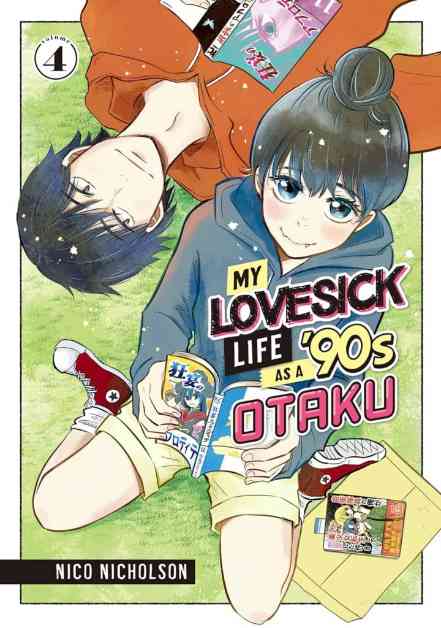We’ve reached the end of the heartfelt romcom “My Lovesick Life as a ’90s Otaku,” and finally, we learn how a girl who was once deeply invested in manga in the 1990s, distanced herself from that world, only to find her way back to it.
After Sara’s birthday party, Megumi feels ashamed of her otaku interests, believing she has lost Masamune, the man she loves, because of them. She decides to cut ties with anything related to anime and manga, including her friend Miko, avoids Masamune in class, sells her manga collection, and moves on with her life. She gets a job, falls in love, gets married, has a daughter named Sakura, and eventually divorces her husband who doesn’t approve of Sakura’s anime fandom.
Years later, Megumi discovers that Masamune has a son named Tadamune, who shares Sakura’s love for anime. Megumi reunites with Masamune, now a divorced father, and helps him get his life back on track while reflecting on their past and rebuilding their friendship.
The final volume of the series continues to impress with its production quality, including the translation by Matt Treyvaud, lettering by Jamil Stewart, and editing by Maggie Lee. The highlight of this volume is the shift away from Megumi’s flashback narration, allowing us to see the impact of otaku culture on her life and how it has evolved over time.
The broader acceptance of otaku culture in mainstream society is a significant theme in this volume, reflecting real-world changes. Megumi’s friends introduce her to anime music at a music festival, Miko becomes a successful mangaka with an anime adaptation on Netflix, and her pen pal Itokichi finds success with an isekai light novel featuring a JSDF protagonist. Even Masamune’s mother, Fujiko, finds a way to channel her otaku passion positively.
The article also touches on the changing attitudes towards anime in the UK, highlighting the BBC’s foray into anime streaming and mainstream acceptance of shows like Pokémon and One Piece. Despite this progress, there is still a hint of snobbery towards anime-related content in Britain, as seen in the lack of critics reviewing a Pokémon-themed comedy show at the Edinburgh Fringe.
While any form of art will face criticism and challenges, “My Lovesick Life as a ’90s Otaku” goes beyond nostalgia, emphasizing the importance of acceptance from friends, family, and society. Love, as portrayed in the series, can take many forms and overcome various obstacles, making it a compelling and relevant story for readers.
Our review copy of the series was provided by Kodansha through Diamond Book Distributors UK.

